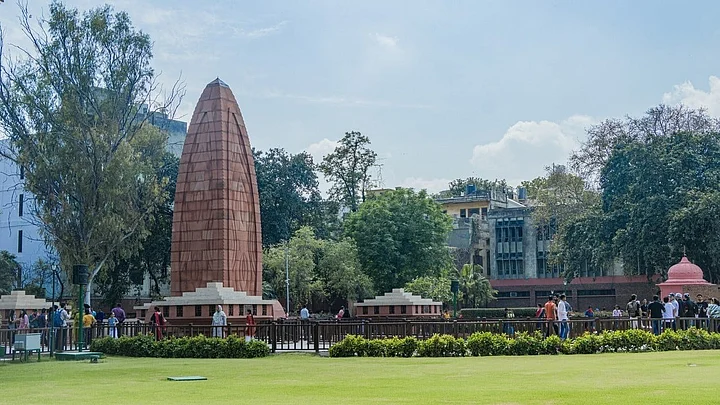Jallianwala Bagh Massacre: One of the most inhuman incidents in the history of British colonial governance in India occurred on 13 April 1919. The Jallianwala Bagh Massacre in Amritsar, Punjab, marked a crucial moment in the history of modern India.
Ever since the massacre, people in India observe the day on 13 April. It is a day to remember all those peaceful protestors who were killed. We should observe the day by knowing its history and its impact on our freedom struggle against the British Raj.
Jallianwala Bagh Massacre: History
The massacre was a tragic event that resulted in the deaths of hundreds of innocent men, women, and children, as well as severe injuries to many more.
Reginald Dyer, the acting military commander of Amritsar, learned about a public gathering in the Jallianwala Bagh. He covered all the exits of the Bagh and ordered his troops to fire at the unarmed crowd. As per the details recorded, 150 bodies were extracted from the well at the centre of the Jallianwala Bagh.
The firing lasted ten to fifteen minutes and stopped when the ammunition was exhausted. It is important to note that around 1,650 rounds were fired and over 500 people were killed. Many people were also injured.
The Jallianwala Bagh Massacre is one of the greatest tragedies that the citizens of India cannot forget.
Jallianwala Bagh Massacre: Causes
The Jallianwala Bagh Massacre was a turning point in the Indian people's struggle for freedom and independence from the British government. Many demonstrations were held against the Rowlatt Act of 1919, which was highly controversial.
The British government used all available means to suppress the rallies and demonstrations, and on 9 April 1919, two Indian nationalists, Dr Satyapal and Dr Saifuddin Kitchlew, who were participating in nonviolent demonstrations, were arrested and deported by the Punjab government's Lieutenant Governor, Sir Michael O'Dwyer.
The demonstrators became angry, and on 10 April 1919, they marched to Sir Irwin's house and demanded the release of Dr Satyapal and Dr Saifuddin Kitchlew.
The police opened fire on the demonstrators, who responded by throwing stones and lathis at the Britishers. The incident sparked outrage in India and abroad, which eventually fueled India's call for independence and even moderate nationalists started adopting a more radical stance in their demand.
Mahatma Gandhi and Rabindnath Tagore, two prominent personalities of the independence movement, called the horrific incident a “massacre” and launched nationwide protests across various states and cities.
Jallianwala Bagh Massacre: Significance
The Jallianwala Bagh Massacre remains a significant event in Indian history and a powerful reminder of the sacrifices made by those who fought for India's freedom.
The Indian government launched the Hunter Commission to investigate the incidents that took place in Punjab due to and after the massacre.
The site of the massacre is now a national monument, which serves as a reminder of the horrors of colonialism and the struggles for independence. A museum was also built in March 2019, called Yaad-e-Jallian Museum, to provide an authentic account of the massacre.
(Disclaimer: Parts of this article were generated by AI and published after the content was editorially modified and verified by a human based on their own judgement and expertise. The Quint does not publish AI-generated content without direct human involvement and oversight).
(At The Quint, we question everything. Play an active role in shaping our journalism by becoming a member today.)
